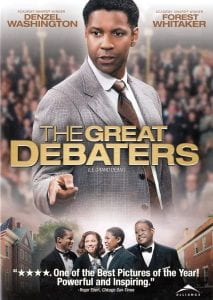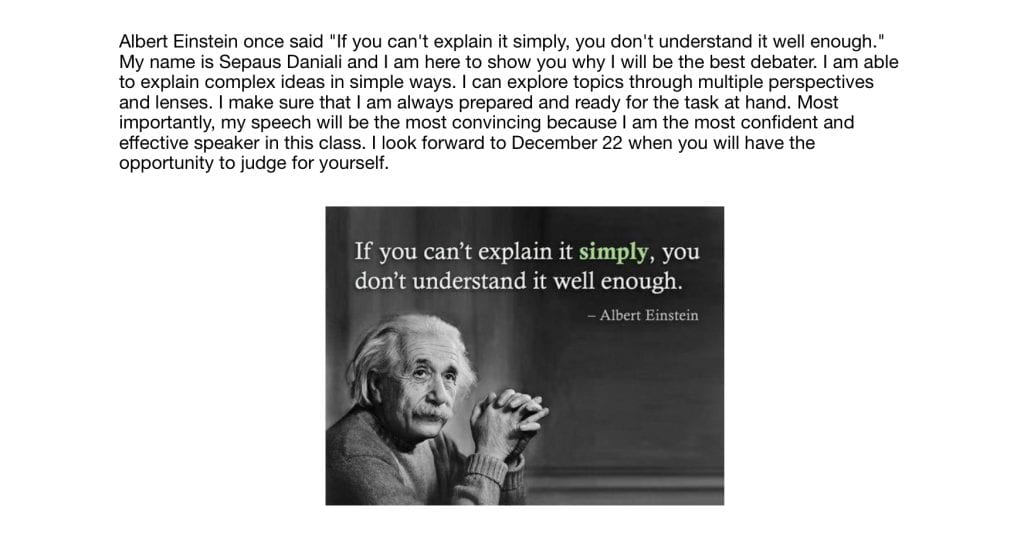How can we use a formal debate to convince and audience we’re right?
Welcome back to my blog. Sorry it’s been a while. I just woke up from a long nap. This project was all about debate. Eventually, our final product would be a formal debate against another student, presented at the PLP Winter Exhibition. But before we could do that, we had to learn what makes a good debate.
A debate is a formal argument, where 2 opposing sides present a case about a specific topic.
We began our project like many others, by watching a movie. This time, we watched the Denzel Washington movie The Great Debaters. It was a pretty solid movie, one of the better ones we watched in PLP, and gave me a lot of inspiration for my debate. Out first assignment was to create a short speech explaining why YOU will be an effective debater. I slightly misunderstood the assignment. Everyone else gave multiple reasons for why they will be great debaters, but I only needed 1: my unwavering confidence. Despite my slight confusion, I managed to deliver a pretty effective and well researched initial speech that won the hearts and minds of PLP 11.
Next, we were to write a short essay arguing for something we believe to be the best in its category. For example, Ben Yerxa wrote “Why my uncle mike is the most dangerous man alive.” I wrote my essay about Mac Miller, the best musician ever. I really enjoyed this assignment and I think this is one of the best pieces of writing. The challenge was we had to limit our essay to only 10 sentences. I think I did very good at telling a full story and providing analysis of a full lifetime in such a short amount of text.
Click here if you want to read this piece.
After that, we had a refresher on Ethos, Pathos, and Logos, something we learned about in one of our first PLP projects in grade 8. By now, we were ready to actually deliver a short speech. We were all given a template and a list of quotes to include in another short speech about why YOU will be the master debater. I took this assignment a little bit more seriously than the first, and talked about more than my heroic confidence and immense bravery.
Finally, it was time to choose an opponent, find a topic, and build a case. I debated Max Louie, a worthy intellectual foe, and a very articulate speaker. For our topic, we decided to argue a very large, confusing and fictional topic: should humans upload their brains to a computer system and live forever in a simulation? Despite the futuristic premise, there are currently researchers trying to develop their technology. I argued the negative for this topic, and Max argued the affirmative. We spent a few weeks conducting research, building a speech, and assembling a rebuttal.
After a few weeks of revision, practice, revision, and practice, it was showtime. At the annual PLP winter exhibition, we set up a fairly low key set up, consisting of a podium, seating, and some baked goods, and it was time to perform our speeches for the parents and student in attendance. No one had shared their speeches with their opponents and it was interesting to see how we could all come to different conclusions over tough questions and see them from many perspectives. Mine and Max’s debate was scheduled towards the end, so we got to watch a lot of other debates. After fierce competition and intense rebuttal, Max Louie won the audience vote in a surprise upset.
I worked really hard on my speech and put in lots of effort, but even though I lost, I was still happy with my result. This was one of the most challenging but also satisfying PLP projects in a while. I really appreciated how we got the ability in this project to think for ourselves and have a lot of creative control with our final product.



